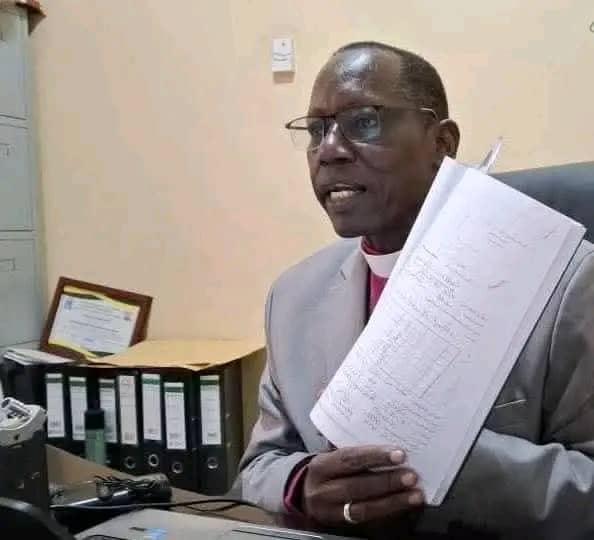
The Episcopal Church of South Sudan (ECSS) and Central Equatoria State (CES) government are locked in a serious land dispute marked by allegations of illegal land intrusion, property destruction, and threats against church leaders.
The dispute began early this month when CES started demolishing structures around St. Stephen Church in Munuki, asserting that the land belongs to residents.
However, the church claimed ownership of the land and accused the state government of grabbing it, an allegation CES has denied.
Addressing the conflict in a press conference on Tuesday in Juba, Assistant Bishop of the ECSS, Bishop Jackson George, condemned CES authorities for what he described as “unlawful” and “disrespectful” actions against church property and leadership.
To support the church’s position, Bishop George explained that the church acquired the land in 1987 and was granted official documentation by the Ministry of Housing, which operated under the then-regional government of Sudan.
At the heart of the dispute are church land documents issued by the national Ministry of Housing, which the CES government has allegedly dismissed as “illegal.”
However, Bishop George explained that the church was compelled to file a legal case in 2008 after certain individuals claimed ownership of the land. Since then, court rulings in 2019, 2020, 2023, and 2024 have all favoured the church.
Despite this, the occupants filed an appeal, and both parties are currently awaiting the final judgment.
“We are deeply concerned to see the CES Minister of Housing acting unilaterally and undermining the ongoing judicial process,” he stated.
The church strongly rebuffed the state’s claim, asserting that its documents are valid and recognized under South Sudan law.
“Branding these legal documents as ‘illegal’ is a direct affront to the integrity of the church and the country’s legal institutions,” Bishop George said.
The church further accused CES officials of encroaching on church plots without notification or consent, opening roads, and destroying vital church infrastructure in the process.
The bishop described the authorities’ acts as violations of property rights and interference in a matter currently under judicial review.
In addition to physical encroachment, church leaders have reported verbal threats and defamatory remarks.
They claim CES officials labelled the ECSS as “the biggest institution holding illegal documents” and used “abusive language” toward ministers and church members.
The church demands a public apology from the CES government to the ECSS and all affected Christian communities.
It also requests an immediate halt to any re-demarcation or occupation of church lands, the restoration of and compensation for destroyed church infrastructure, and an investigation into the Minister of Lands for alleged abuse of office.
The church emphasized that the dispute is before a competent court, criticizing CES government for interfering before the court delivers its ruling.
“Globally, when a land dispute is in court, the government remains a neutral body. Any interference before the final ruling undermines the rule of law,” Assistant Bishop George said.
While the ECSS reaffirmed its commitment to peace, cooperation, and legal resolution, Bishop George warned that it would firmly defend the rights and dignity of the church.
The unfolding tension raises broader concerns about religious freedom, land governance, and the relationship between church institutions and state authorities in South Sudan.

